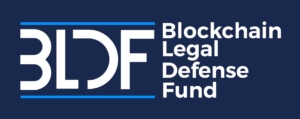Japan to Redefine Crypto as Financial Product
Japan’s Financial Services Agency (FSA) has announced a bold proposal to redefine cryptocurrencies as regulated financial products rather than mere payment methods. The change, expected to take effect by 2026, would expand government oversight, close insider trading loopholes, and impose stricter compliance standards on exchanges and token issuers.
Currently, Japan treats crypto primarily as a means of settlement, which limits the tools regulators can use to oversee the market. The new classification would bring crypto assets under the Financial Instruments and Exchange Act, applying the same legal standards used for stocks, bonds, and derivatives.
For Japanese exchanges, this means major changes are on the horizon. They will need to implement advanced surveillance systems to detect market manipulation, conduct issuer due diligence, and follow disclosure requirements. For developers, token launches may soon require prospectuses, compliance officers, and risk assessments similar to IPOs.
The motivation behind the reform is twofold. First, the government wants to prevent insider trading, which remains difficult to police under the current framework. Second, officials believe that aligning crypto with financial instruments will attract more institutional capital by reducing perceived risk.
This regulatory pivot also reflects Japan’s effort to position itself as a responsible hub for digital finance. In the wake of scandals like the Mt. Gox collapse and recent exchange hacks, Japan has steadily built one of the world’s most robust licensing systems for crypto. The new rules aim to extend that rigor beyond consumer protection into market structure and behavior.
The potential impact on global markets is significant. If Japan’s framework proves effective, other jurisdictions—especially in Asia and Europe—may follow suit. The move may also increase pressure on U.S. lawmakers to finalize a clear classification system, something the SEC and CFTC continue to spar over.
For token projects, especially those seeking Japanese market access, now is the time to reassess legal positioning. Tokens that are currently unregulated could soon face a licensing gauntlet. Legal teams must also prepare for new definitions of material disclosure and insider knowledge in the crypto context.
While some fear these changes may stifle innovation, others argue that professionalizing the market is necessary for long-term growth. By treating tokens like securities, Japan hopes to move beyond retail speculation and into structured, compliant investment products.






Leave a Reply
Want to join the discussion?Feel free to contribute!